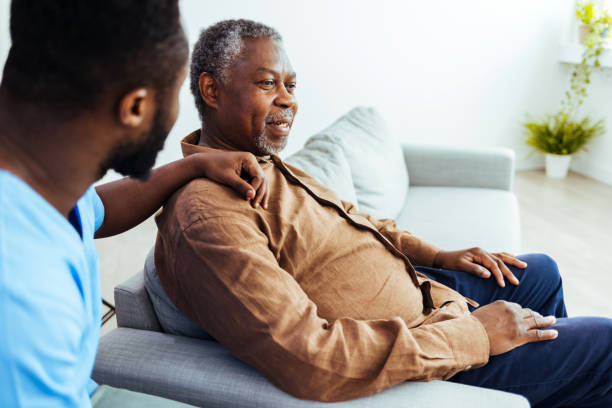
A stroke impacts everyone—the person who suffers from the stroke, the people around them, and their loved ones. If you know someone who has just had a stroke, it can be a distressing and overwhelming time. Whether you’ve witnessed them having a stroke, helped provide immediate care, got them to the hospital, or assisted in their recovery, you may be feeling the emotional and physical effects. However, there are steps you can take to manage your own emotions and feel more empowered to support your loved one during this challenging time.
Process your experience
The first step towards coping with a loved one who has just had a stroke is to acknowledge and process your own emotions about this experience.
Witnessing a loved one having a stroke can be frightening and traumatic. Just remember, it’s completely normal to feel a range of emotions, including:
- Shock
- Fear
- Helplessness
- Depression
- Anger
Allow yourself to feel these emotions and find healthy outlets for expressing them. You may want to use a feelings wheel to help identify what you’re feeling or focus on where you’re feeling it in your body. It may be helpful to talk to your therapist or engage in forums/patient communities that involve taking care of a loved one after a stroke.
Lean on your friends, family, or support groups who can provide a listening ear and support. They might be able to help you take care of day-to-day tasks like grocery shopping to ease some of the heaviness.
In your moments of free time, do your best to focus on your mental and emotional well-being—this is just as important as navigating the recovery journey with your loved one.
RELATED: Tips For Caregiving for Someone After a Stroke
Empower yourself with education and awareness
There is always fear and anxiety about the unknown. A stroke is scary, and we don’t always know what to do after the fact. Educating yourself about strokes and their effects can help you feel more empowered and prepared to provide support to your loved one.
Start to learn and understand the common physical and emotional challenges that stroke survivors may face and the best ways you can provide support to them. It’s not always easy, and your loved one may be having their own emotional distress as they go through rehab. Have patience and stay kind to them and yourself.
Communication
Keep the communication lines open with healthcare professionals and ask questions. Seek guidance from them and occupational therapists about how to assist with daily activities, such as bathing, dressing, or eating. Stay aware of any medications they may be taking and their potential side effects.
Understanding their treatment and recovery plan can help you provide the right kinds of support, leaving both you and your loved one feeling empowered and hopeful.
Talk to your loved one about their stroke—encourage them to take empowering steps in their own recovery. Attend doctor's appointments together, help them follow through with therapy sessions and exercises, and provide emotional encouragement.
Recognize and celebrate small milestones and improvements along the way. You have the ability to provide a significant source of light, motivation and support to your loved one.
RELATED: Life After Stroke: 5 Self-Care Tips
You’re not alone
Finally, remember that you are not alone. Reach out to support groups or online communities specifically for caregivers of stroke survivors. Connecting with others who are going through similar experiences can provide invaluable emotional support, a platform for sharing advice, and a sense of belonging.
Coping when a loved one has just had a stroke requires lots of patience, balance and self-compassion. By acknowledging your emotions, educating yourself and communicating effectively, you can navigate this challenging journey by providing meaningful support to your loved one. You are a significant difference in your loved one’s recovery, and together you can face the challenges ahead.









